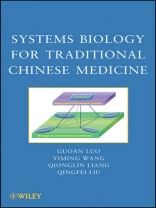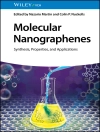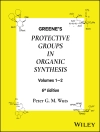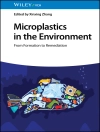The application of systems biology methods to Traditional
Chinese Medicine
Emphasizing the harmony of the human body with the environment,
Traditional Chinese Medicine (TCM) has evolved over thousands of
years. It is a systemic theory derived from clinical experience,
the philosophy of holism and systematology, and the belief that man
is an integral part of nature.
Systems Biology for Traditional Chinese Medicine
describes how the latest methods in systems biology can be applied
to TCM, providing a comprehensive resource for the modernization
and advancement of TCM as well as general drug discovery efforts.
It is the first comprehensive work to propose a system-to-system
research methodology to study the interaction between TCM and the
human body and its applications in drug research and
development.
Using three popular traditional Chinese
medicines–Shuanglongfang, Qingkailing, and
Liushenwan–as examples, the authors set forth case examples
demonstrating how to find material groups, perform efficacy
screenings, and conduct safety evaluations of TCM. The book
also:
* Describes the mechanisms of TCM at the molecular and systems
levels using chemomics, genomics, proteomics, metabolomics, and
bioinformatics
* Places modern scientific technologies within the context of
TCM, helping drug researchers improve experimental designs and
strategies
* Illustrates how a systems biology approach is compatible with
TCM’s traditional, holistic therapeutic strategies and treatment
modalities
* Presents topics of current interest, such as integrated global
systems biology and the application of chemometrics research to
herbal medicines
This book not only opens a new pathway for the continued
development of TCM, but also for systems biology. In addition, it
fosters collaboration and discussion among Eastern and Western
scientists by applying systems biology to TCM.
สารบัญ
Foreword
Preface
Abbreviations
Chapter 1. Introduction of systems biology of Traditional Chinese Medical (TCM)
1.1 Characteristics and compatibility principles of Traditional Chinese medicine (TCM)
1.2 Key scientific issues in TCM modernization
1.3 Development of systems biology
1.4 Chemomics-integrated systems biology
1.5 Research strategy and prospective of systems biology in TCM
Chapter 2. Chemomics of Traditional Chinese Medicine
2.1 Characteristics and research difficulties of TCM
2.2 Background of TCM chemomics proposal and development
2.3 Chemomics
2.4 Chemomics and the research of composite formular
Chapter 3. Technological platform of TCM chemomics
3.1 Acquisition methods and techniques for TCM chemomics
3.2 Characterization techniques of Chemome-TCM fingerprinting
3.3 Information processing for the study of TCM chemomoics
3.4 Development of intelligent quality control system in the process of Chinese medicine production
Chapter 4. Pharmacokinetic investigation on TCM formula based on global systems biology
4.1 Pharmacokinetic characteristics of TCM formula
4.2 Methodology of pharmacokinetics of TCM formula
4.3 Application of PK-PD model in the toxicological research of Liushen pills
4.4 Project
Chapter 5. Application of genomics in the research of TCM
5.1 Genomics and TCM system research
5.1 Introduction
5.2 Prospect of genomics in TCM research
5.3 Cases of the application of genomics in TCM research
Chapter 6. Proteomics study on TCM
6.1 Proteomics in TCM research
6.2 A case study of proteomics in TCM
6.3 Application of high content screening in TCM research
6.4 Limitations and prospect of TCM research
Chapter 7. Application of metabonomics in research on TCM
7.1 Current research situation of Metabonomics
7.2 Integrating of Quantitative Metabonomics Platform Technology
7.3 Application of Metabonomics in the field of medicine
7.4 Examples of metabonomics research on TCM
Chapter 8. Application of chemometrics and bioinformatics in TCM research
8.1 Introduction of chemometrics
8.2 Chemometric techniques and their applications in TCM research
8.3 Introduction of bioinformatics
8.4 Bioinformatics techniques and their applications in the research of TCM
8.5 Conclusions
Chapter 9. Study of integrated biomarker system of Diabetic nephropathy
9.1 Introduction of Diabetic nephropathy
9.2 Mogensen staging and TCM typing of DN
9.3 Metabonomics study of DN
9.4 Condition of metabolism after treatment with Tang Shen formula (TSF)
9.5 2m RNA study based on TCM syndrome differentiation typing
9.6 Integrated biomarker system of DN
9.7 Conclusions
Chapter 10. Chemomics Research on Composite of Qingkailing (QKL) Injection
10.1 Chemomics research of QKL injection
10.2 Pharmacodynamic evaluation methods of QKL injection
10.3 Research on the simplified QKL formula
10.4 Conclusions
Chapter 11. Integrated global systems biology for the research and development of Chinese medicine Shuanglong Formula
11.1 Brief introduction of shuanglong formula
11.2 Chemomics study of shuanglong formula
11.3 Pharmacodynamic evaluation of SLF effective ingredients
11.4 Systems biology study of the mechanism of directed differentiation of stem cells induced by NSLF6
11.5 Anti-myocardial infarction effect of SLF
11.6 Conclusions
Chapter 12. Demonstrative Research on the Safety Evaluation of Liushenpills
12.1 Introduction
12.2 Toxicity study of Chanshu
12.3 Chemomic study on LSP
12.4 Assessment of effectiveness and safety of LSP
12.5 In vivo distribution and metabonomics of LSP and Xionghuang
12.6 Metabonomic research of LSP
12.7 Conclusions
Index
เกี่ยวกับผู้แต่ง
GUOAN LUO is Professor in the Institute of Biomedicine and Director of the Modern Research Center for Traditional Chinese Medicine at Tsinghua University in Beijing. Professor Luo is dedicated to the application of systems biology to study and advance TCM. He has published more than 680 peer-reviewed papers and applied for thirty-one patents. Among the many honors he has received for his research achievements are two National Scientific and Technological Advancement Prizes.
YIMING WANG is Professor at Tsinghua University.
QIONGLIN LIANG is Associate Professor at Tsinghua University.
QINGFEI LIU is Assistant Professor at Tsinghua University.












